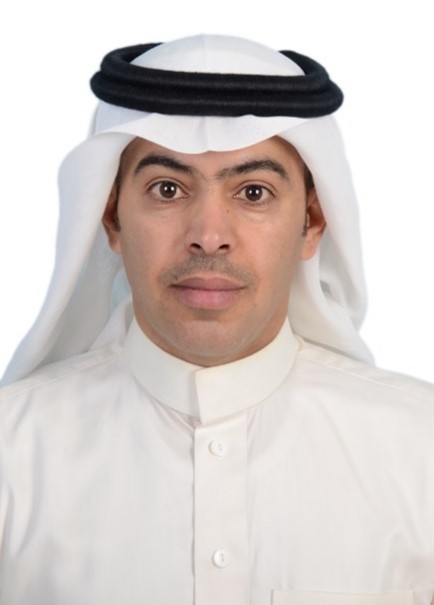About Us
Welcome to the Department of Anatomy in the College of Medicine at King Khalid University. The department is dedicated to excellence in teaching and innovative medical research. It offers a variety of courses in Human anatomy, embryology, histology as well as neuroanatomy for Medical, Dentistry, Pharmacy, Applied Medical Sciences and Nursing students. Anatomical education is imparted through formal lectures, demonstrations, and well-equipped laboratories with plastinated specimens, plastic models, CT/MRI/X-ray, Anatomage, prosected cadavers and digital microscopes. Our courses are consistently ranked amongst the best classes in medical college year after year. Our dynamic interdisciplinary staff comprises administrators, clinicians, scholars, educators, researchers and technology experts. We work synergistically to blend the “best of the old” with the “best of the new”. The department continues to offer a traditional cadaver-based teaching & learning curriculum. In parallel, we have developed an innovative program for gross anatomy and histology laboratory sessions. Students are divided into small group sessions using a laboratory manual that allows students to examine prosected (well-dissected) specimens of the human cadaveric material as well as light microscopy in examing the different histological sections. Although our instructors are available to direct students through practical activities, these classes are meant to be led by students working in groups. Student involvement through the anatomy and histology practicals will allow them to identify the anatomical and microscopic features of each part of the body on dissected human cadavers, plastinated specimens, and plastic anatomical models, as well as apply this knowledge to the discussion of functional and applied aspects of the human body. Dividing students into small groups for learning activities is more potent in promoting critical thinking, problem-solving, communication, psychomotor and oral skills. Moreover, the department receives annually a number of postgraduate students and prepares them to pursue in a wide array of subjects related to anatomy in a collaborative research environment.
VISION, MISSION AND GOALS:
VISION:
In line with the vision of College of Medicine, the department vision is to be a regional leader in improving health through innovation in medical education, research and community service in the region.
MISSION:
As a mission, the department is dedicated to promoting outstanding anatomical knowledge by developing excellence in medical education that will aid future medical professionals in providing high quality healthcare and carrying out scientific research to contribute to the service of the community.
GOALS:
- Interact collegially with faculty, staff, and students.
- Foster collaborative learning among students.
- Improve continually the efficiency of learning for our students.
- Share our teaching and learning techniques with the intellectual community at large.
- Creation of relatable and thought-provoking anatomy content for target University Colleges courses
- Exploring the similarities and differences between healthy and unhealthy tissues, including discussion of pathophysiology, relevancy to everyday life, and spreading awareness of various disease states.
- Through research and networking, we draw attention to the field of anatomy educational outreach.
- Sharing of resources and knowledge with institutions and outreach programs to expand anatomical outreach capabilities in the region.

Head of Anatomy Department
Mansour Abdullah Saeed Alghamdi
Associate Professor
Graduate Diploma in Forensic Science
Graduate Diploma in Surgical Anatomy
MSc. in Anatomy and Cellular Medicine
MSc. in Forensic Science
Ph.D. in Medical Genetics, Genomics and Epigenetics
Anatomy Department, College of Medicine, King Khalid University
Office no. G-105 PO Box 641 Abha, Asir Region,
Postcode: 62421. Saudi Arabia
Mobile: 00966 505236044, Tel: 00966172417866
Email: m.alghamdi@kku.edu.sa
|
Programs and Courses: |
||||||||||||||||||||||||||||||||||||||||||||||||||||||||||||
|
The department teaches 10 courses to the students of the College of Medicine, College of Dentistry, College of Applied Medical Sciences, College of Nursing, and College of Pharmacy: |
||||||||||||||||||||||||||||||||||||||||||||||||||||||||||||
|
1. Courses for College of Medicine students:
2. Courses for College of Dentistry, Nursing and Pharmacy students:
|
|
Research |
||||||||||||||||||||||||||||||||||||||||||||||||||||||||||||||||||||||||||||||||
|
The Research provides the basic feed for academic knowledge across all academic departments. Research provides depth in the knowledge of a given area of exploration. The Anatomy department has been involved in many aspects of research fields, including anatomy & anatomic variations, histopathology, cellular and molecular biology, embryology, neuroscience and medical education |
||||||||||||||||||||||||||||||||||||||||||||||||||||||||||||||||||||||||||||||||
|
Research project done by the department:
of Lipogenesis, Autophagy, Apoptosis, and Inflammation in Rats
a discipline -based Curriculum
for the treatment of cervical carcinoma
Ongoing Research Projects in the department:
|
||||||||||||||||||||||||||||||||||||||||||||||||||||||||||||||||||||||||||||||||
|
Community Services |
||||||||||||||||||||||||||||||||||||||||||||||||||||||||||||||||||||||||||||||||
|
The department's role extends to participation in community service and public health education programs and seminars, as well as participation in academic seminars in secondary schools to provide professional medical information.
The department also welcomes junior high school students and familiarizes them with the parts of the human body.
Our aim is to support the training of young residents and doctors. There are courses for training in specific surgical techniques. In addition, we help develop and test new technologies and surgical instruments, as well as newly invented prostheses and implants. We also support training for paramedical groups such as physical therapy and medical technology companies.
We organize clinical courses in almost every medical field: Emergency Medicine, Infiltration Course, Neurosurgery, Otolaryngology, Plastic Surgery, Orthopedic Surgery, Cardiovascular Surgery, Visceral Surgery, Gynecology, Robotic Surgery, Intensive Care Medicine, Pedal Surgery, Anesthesia Care, Intensive Care Medicine. |
||||||||||||||||||||||||||||||||||||||||||||||||||||||||||||||||||||||||||||||||
|
Male staff
Female staff
|